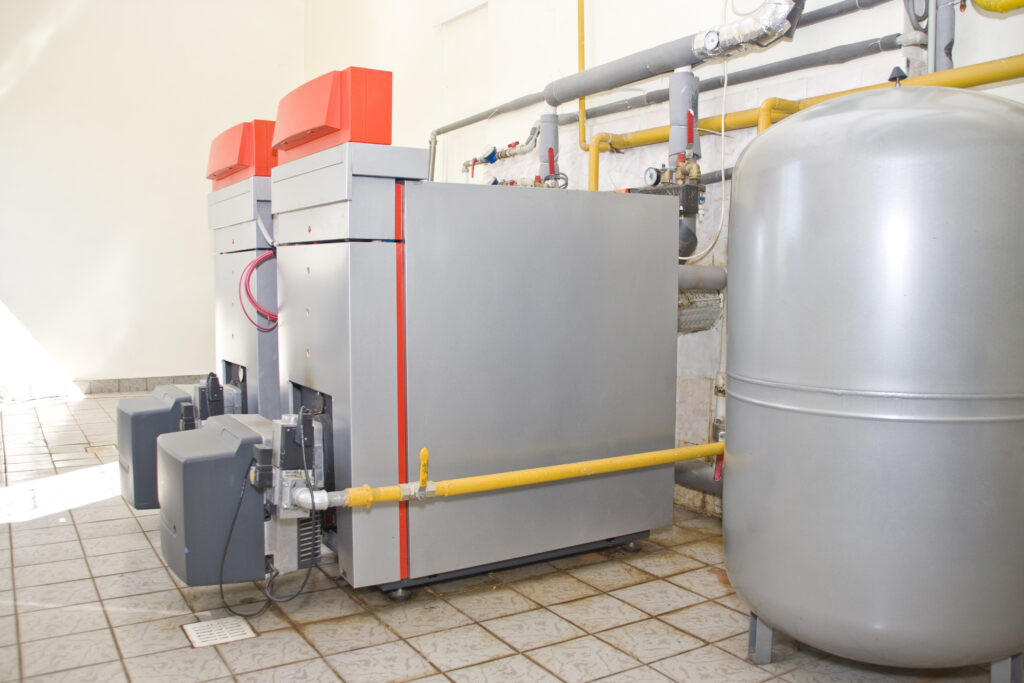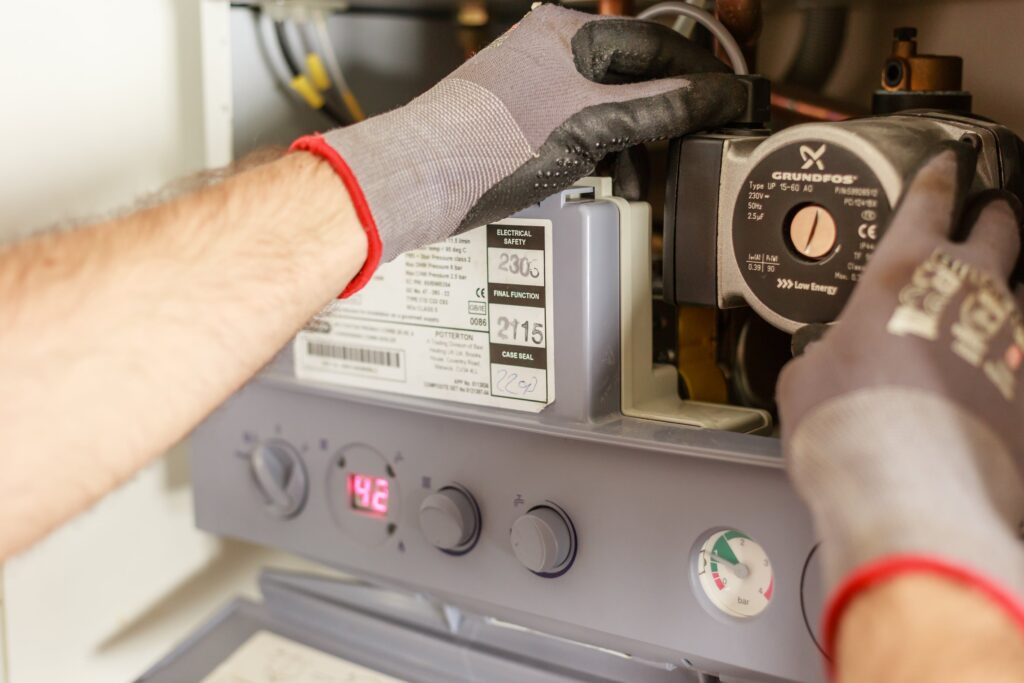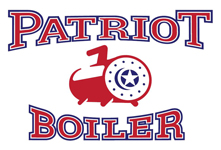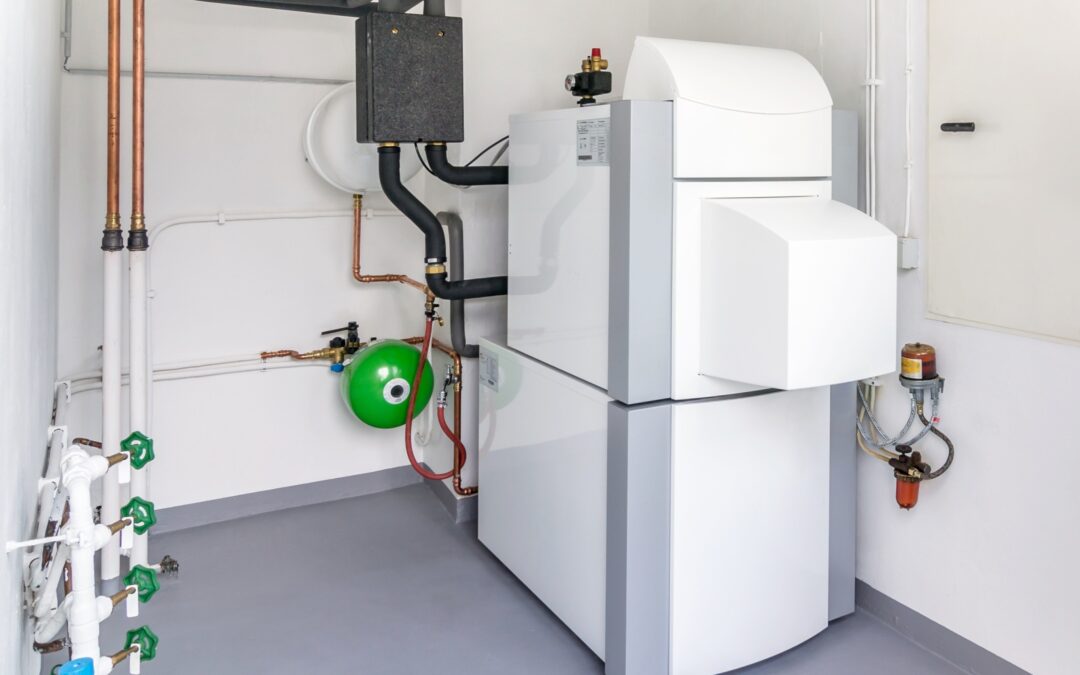Oil boilers are pivotal in many households, providing warmth and hot water efficiently. Understanding their functioning is crucial for optimal usage and maintenance. Oil boilers, often found in areas without access to a natural gas supply, operate by burning heating oil to generate heat. These boilers utilize a combustion chamber where the oil ignites, producing heat that’s then transferred to water and ultimately circulated through the heating system. Exploring the intricacies of how oil boilers work involves delving into their components, functionality, and benefits, shedding light on their significance in residential heating systems.
How Oil Boilers Work
Oil boilers are heating appliances designed to generate heat by burning heating oil as a fuel source. These boilers are commonly used in residential settings, especially in areas where natural gas infrastructure might not be available. They function by heating water, which then circulates through a network of pipes or radiators in a home’s heating system, providing warmth to different rooms. Oil boilers typically consist of components like a burner, combustion chamber, heat exchanger, flue, and controls. The burner injects heating oil into the combustion chamber, where it ignites, generating heat that’s transferred to the water within the heat exchanger. The heated water is then circulated through the house’s heating system, providing central heating and hot water. Oil boilers come in various sizes and efficiency levels, offering reliable heating solutions for households relying on heating oil as a primary energy source.
Understanding the heating process is essential for homeowners as it ensures the optimal functioning of the boiler. Oil boilers stand as stalwarts in the realm of residential heating, offering efficient warmth and hot water to countless homes. Understanding their workings, from the combustion process to heat transfer mechanisms, unveils their significance in providing reliable heating solutions. Oil boilers, equipped with essential components like burners, combustion chambers, heat exchangers, flues, and controls, work on intricate systems designed to convert heating oil into usable heat.
The Heating Process
The functionality of an oil boiler revolves around a simple yet effective process. It starts with the burner injecting heating oil into the combustion chamber, where it mixes with air before igniting. The ignited oil generates heat, raising the temperature within the heat exchanger. Water from the central heating system goes through the heat exchanger, absorbing the heat. This heated water is then pumped through the pipes or radiators, releasing warmth into the rooms. Meanwhile, the combustion gases produced during this process exit the boiler through the flue, ensuring safe and efficient ventilation.
The process begins with the burner injecting oil into the combustion chamber, igniting a controlled combustion that generates heat. This heat is then transferred to water within the heat exchanger, which circulates through the home’s heating system, providing warmth to various spaces.
Here’s an overview of the heating process in an oil boiler:
- Fuel Injection and Ignition: The heating process begins with the burner injecting heating oil into the combustion chamber. The burner mixes the oil with air in precise proportions for efficient combustion. Once mixed, the oil-air mixture is ignited, initiating the combustion process.
- Heat Generation: As the oil ignites, it produces a flame that generates intense heat within the combustion chamber. This heat is the primary energy source used to warm the water circulating through the boiler.
- Heat Transfer: The generated heat is then transferred to the water within the heat exchanger. It is a vital component that efficiently transfers the heat from the combustion process to the water without direct contact between the two.
- Circulation: The now-heated water is circulated through a system of pipes or radiators in the house’s heating system. This heated water releases warmth into the various rooms, providing central heating throughout the home.
- Exhaust Ventilation: The combustion process simultaneously produces gases that need to be safely removed from the system. These combustion gases, including carbon dioxide and water vapor, exit the boiler through the flue, ensuring proper ventilation and safety.
- Regulation and Controls: Throughout this process, various controls and sensors monitor the boiler’s temperature, pressure, and other factors. They regulate the fuel flow, combustion process, and heating operation to maintain efficiency and safety.
The Process Ensures Optimal Heating Function
Oil boilers remain a cornerstone of efficient residential heating systems, providing warmth and hot water to countless homes. The functionality of an oil boiler revolves around a straightforward yet efficient heating process designed to provide warmth and hot water to homes. Understanding their functioning—from the combustion process to heat transfer mechanisms—is pivotal for homeowners to optimize their performance and ensure safety. Regular maintenance, adherence to safety protocols, and professional servicing contribute to their efficiency, durability, and reliability. As technology advances, modern oil boilers continue to evolve and work better, offering higher efficiency, reduced environmental impact, and improved heating capabilities, making them a trusted choice for households in need of efficient heating solutions without access to natural gas.

Components of an Oil Boiler
Oil boilers consist of various components that collectively facilitate the heating process. The primary elements include the burner, combustion chamber, heat exchanger, flue, and controls. The burner ignites the heating oil, while the combustion chamber allows for the controlled combustion of the oil, producing heat. The generated heat is then transferred to water within the heat exchanger, heating it to the desired temperature. The heated water is circulated through pipes or radiators in the house, providing warmth to different rooms. The flue removes combustion gases safely from the system while controls manage the boiler’s operation, maintaining optimal performance and safety.
Oil boilers consist of several essential components that work together to generate heat:
- Burner: The burner is responsible for injecting and atomizing the heating oil into the combustion chamber. It mixes the oil with air and ignites it to initiate the combustion process.
- Combustion Chamber: This is where the heating oil ignites and burns, generating heat. It’s designed to contain the combustion process safely and efficiently.
- Heat Exchanger: This crucial component transfers the heat produced from the burning oil to the boiler’s water. As the water passes through the heat exchanger, it absorbs the generated heat.
- Flue: The flue is an exhaust pipe that safely removes combustion gases, such as carbon dioxide and water vapor, from the combustion chamber to the exterior of the building. It ensures proper ventilation and prevents the buildup of potentially harmful gases inside the property.
- Controls: They include various mechanisms and sensors responsible for managing and regulating the boiler’s operation. They monitor temperature, pressure, and other factors to ensure safe and efficient functioning.
- Pumps and Valves: These components facilitate the circulation of heated water throughout the heating system. Pumps help move the water, while valves control the flow and direction of the water.
- Expansion Tank: In some boiler systems, an expansion tank is included to accommodate the expansion of water as it heats up. It helps regulate pressure within the system.
Understanding these components is crucial for proper maintenance and troubleshooting to ensure the effective operation of an oil boiler. Regular inspection and maintenance of these parts contribute to the boiler’s longevity and performance.
Benefits of Oil Boilers
Oil boilers offer several advantages, making them popular for many homeowners. They tend to be highly efficient, providing consistent and reliable heating. Their efficiency contributes to reduced energy consumption, potentially lowering heating bills. Moreover, oil boilers can produce high temperatures quickly, ensuring rapid heating when needed. They’re also known for their durability and longevity, requiring minimal maintenance when properly serviced. Additionally, with technological advancements, modern oil boilers boast enhanced efficiency and reduced environmental impact, aligning with sustainability goals.
Oil boilers offer several benefits, making them a popular choice for residential heating systems:
- Efficiency: Modern oil boilers are highly efficient, providing reliable and consistent heating throughout the home. They operate at high-efficiency levels, converting a large portion of the fuel into usable heat, which can help reduce energy consumption and heating costs.
- Rapid Heating: Oil boilers can produce high temperatures quickly, ensuring rapid heating of water for both central heating and hot water purposes. This characteristic makes them particularly useful in colder climates where fast and consistent heating is essential.
- Durability and Longevity: Oil boilers are known for their durability and longevity. When properly maintained and serviced, they can have a long lifespan, providing reliable heating for many years.
- Minimal Maintenance: While regular maintenance is necessary, oil boilers generally require minimal day-to-day upkeep. Routine servicing by a professional helps ensure optimal performance and identifies any issues early, reducing the likelihood of breakdowns.
- Versatility: Oil boilers are versatile and suitable for various heating needs, including central heating and hot water supply. They can efficiently heat larger homes or properties that require higher heating capacities.
- Availability: Heating oil is widely available, making it a viable option for areas where access to natural gas might be limited or unavailable. This availability ensures a consistent supply of fuel for the boiler.
- Improved Technology: Advancements in technology have led to more efficient and environmentally friendly oil boilers. Modern models often incorporate advanced features to enhance efficiency and reduce environmental impact, aligning with sustainability goals.
Understanding these benefits helps homeowners make informed decisions about their heating systems, considering factors such as efficiency, reliability, and suitability for their specific heating needs. Regular maintenance and professional servicing further enhance the benefits of oil boilers, ensuring their optimal performance and longevity.
Maintenance and Care
Maintaining an oil boiler is essential for its efficiency and longevity. Regular servicing by a qualified boiler professional ensures that the system operates optimally, preventing potential breakdowns and identifying any issues early on. Cleaning and inspecting components like the burner, heat exchanger, and flue are integral parts of maintenance to ensure smooth operation and safety. Monitoring oil levels and scheduling timely deliveries is crucial to prevent running out of fuel, as an empty oil tank can damage the boiler. Additionally, checking for leaks, ensuring proper ventilation, and promptly addressing any unusual noises or odors are vital safety measures.
Proper maintenance and care are necessary to ensure an oil boiler’s optimal performance, efficiency, and longevity. Here are key steps in maintaining and caring for an oil boiler:
Steps in Maintaining Oil Boilers
- Regular Servicing: Schedule annual maintenance by a qualified technician. Professional servicing involves inspecting and cleaning various components, checking for leaks, and ensuring safe and efficient operation.
- Cleaning Components: Clean the boiler’s components regularly. It includes cleaning the burner, heat exchanger, flue passages, and vents. Removing dirt, soot, or debris prevents blockages and ensures efficient heat transfer.
- Checking Oil Levels: Regularly monitor the oil levels in the tank. Ensuring an adequate supply of heating oil prevents the boiler from running out of fuel, which can cause damage or breakdowns.
- Ventilation and Flue Inspection: Ensure proper ventilation for the boiler and regularly inspect the flue for any obstructions or blockages. Adequate ventilation is crucial for safe operation and efficient combustion.
- Addressing Leaks: Check for leaks, especially around the boiler, pipes, or tank. Address any leaks promptly to prevent fuel wastage and potential safety hazards.
- Bleeding Radiators: If the radiators are not heating evenly, bleeding them can release trapped air, improving their efficiency. You should do it cautiously and as part of regular maintenance.
- Replacing Filters: Replace or clean oil filters regularly. Clogged filters can impede fuel flow and affect the boiler’s performance.
- Efficiency Checks: Periodically check the boiler’s efficiency using a professional technician or efficiency testing equipment. It helps identify any issues affecting performance and ensures optimal fuel use.
- Safety Checks: Conduct regular safety checks, including checking the boiler’s safety controls, pressure levels, and thermostat settings to ensure safe and efficient operation.
- Professional Assistance: When in doubt or experiencing unusual noises, odors, or issues, seek professional help immediately. Prompt attention can prevent potential breakdowns or safety hazards.
Regular maintenance and care ensure the boiler’s efficient operation and contribute to its longevity. Following manufacturer guidelines and scheduling professional boiler servicing is essential to maintain the boiler’s performance and safety standards.

Oil Boilers Work Efficiently for Your Home
Oil boilers remain a cornerstone of efficient residential heating systems, providing warmth and hot water to countless homes. Understanding their functioning—from the combustion process to heat transfer mechanisms—is pivotal for homeowners to optimize their performance and ensure safety. Regular maintenance, adherence to safety protocols, and professional servicing contribute to their efficiency, durability, and reliability. As technology advances, modern oil boilers continue to evolve, offering higher efficiency, reduced environmental impact, and improved heating capabilities, making them a trusted choice for households in need of efficient heating solutions without access to natural gas.
Oil Boilers Offer Various Benefits
Oil boilers’ functionality revolves around a straightforward yet effective process, ensuring homes are comfortably heated and supplied with hot water. They offer numerous advantages, such as efficiency, rapid heating capabilities, durability, and versatility, making them a favored choice in areas without natural gas access. Regular maintenance and care, including professional servicing, component cleaning, and fuel level monitoring, are pivotal for optimal work performance and longevity for oil boilers.
As technology advances, modern oil boilers continue to evolve, incorporating enhanced efficiency measures and sustainability aspects. Their efficiency, reliability, and adaptability make them a cornerstone of residential heating systems, catering to diverse heating needs. Understanding their functioning and embracing proper maintenance practices ensures consistent and reliable warmth, making oil boilers an enduring choice for homes seeking efficient heating solutions. The reliability, efficiency, and technological advancements in oil boiler systems underline their pivotal role in providing warmth and comfort to homes, promising continued efficiency and reliability in the realm of residential heating.
To ensure that your home heating needs are met effectively, you can always turn to professional boiler installers. Expert installation and maintenance is the best way to guarantee that your heating system is efficient and stays efficient for a long period. And for all your boiler installation and maintenance needs in Arizona, you can contact Patriot Boiler today!


Recent Comments